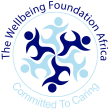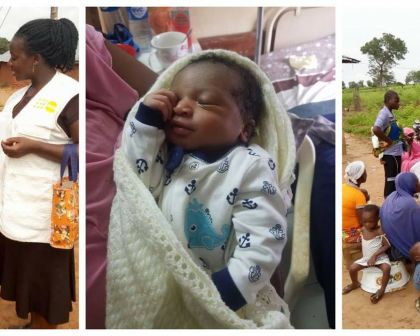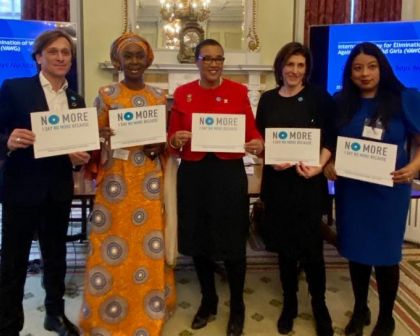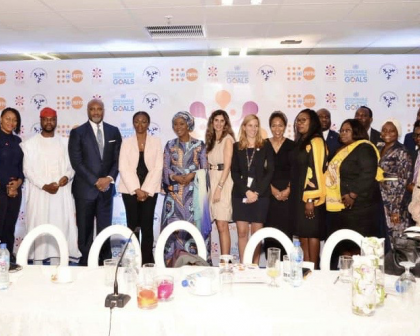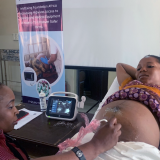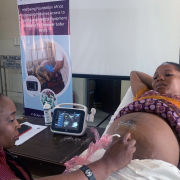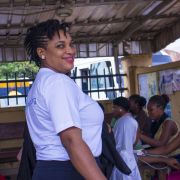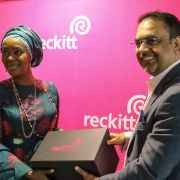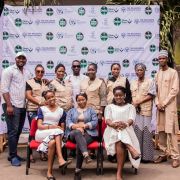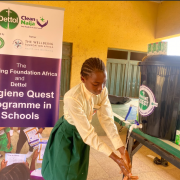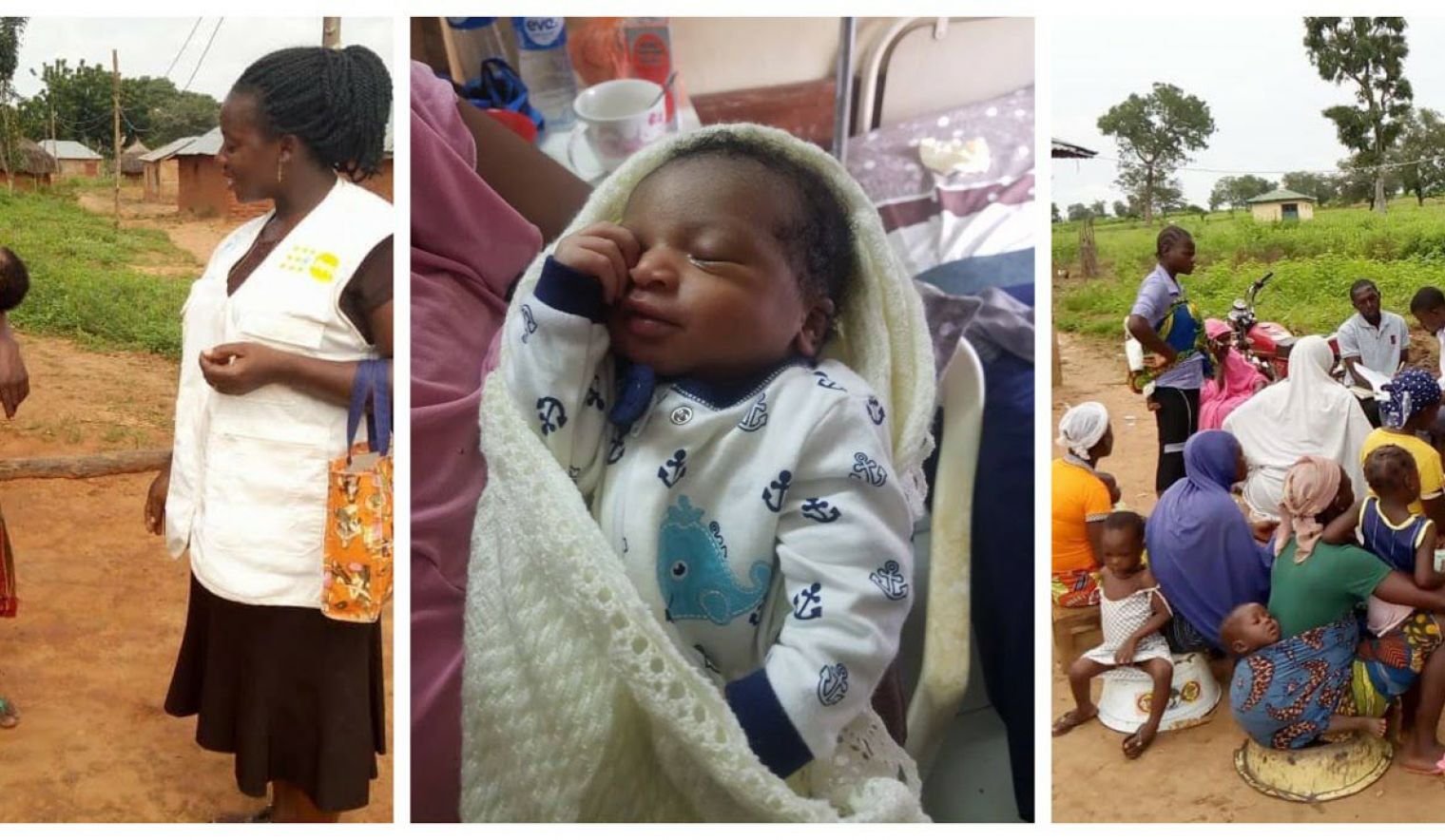
The Wellbeing Foundation Africa’s Annual Review 2019 - Midwives Competencies Are Crucial for Maternal and Child Survival
A letter from our Founder-President
Dear Partners and Friends,
I am pleased to report that 2019 has been a truly impactful year for the Wellbeing Foundation Africa. This year, as every year, I am proud of our team of 55 diligent and expert midwives whose frontline actions are supported by our in-house program, policy, advocacy and data monitoring evaluation teams. Every newborn delivered cleanly, safely and respectfully by a professionally qualified midwife, to a prepared and informed MamaCare mother, in one of the 614 facilities the team operates in across Nigeria, is a testament to their unwavering commitment.
Over the last twelve months, our programmes have gone from strength to strength.
Our Emergency Obstetric and Newborn Care (EmONC) programme, has taken innovative skills training to the 16 Local Government Areas of Kwara State, North Central Nigeria. This year the EmONC programme, which we have been implementing since 2015 in partnership with Johnson & Johnson and the Centre for Maternal and Newborn Health of the Liverpool School of Tropical Medicine (LSTM), successfully matured as we completed this penultimate year-cycle of the phase three-stage, which will conclude in July 2020.
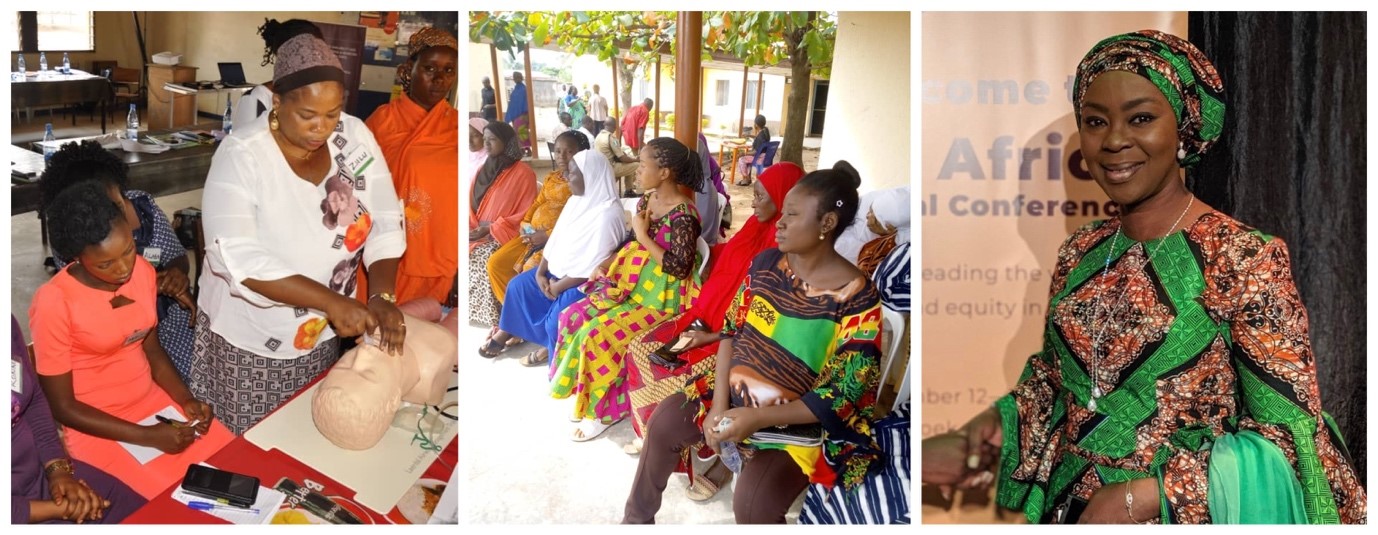
Our flagship MamaCare Antenatal and Postnatal Education programme providing midwife-led care and counsel, and access to family planning information, to over 11,000 mothers monthly at health facilities across Nigeria, has expanded to integrate MamaCare+N, with an increased focus on reinforced nutrition. The MamaCare+N programme expansion includes a further twenty-eight healthcare facilities and 40,000 mothers in the Federal Capital Territory of Abuja. I am tremendously grateful for UNFPA’s support, which has made this possible.
As we approach the conclusion of our successfully implemented multi-year Alive and Thrive Infant and Young Child Nutrition programme partnership with FHI360 in April 2020, supported by the Bill and Melinda Gates Foundation, we have achieved its objectives above and beyond. It has been a privilege to have been able to deploy more than 45 skilled and professional midwives as expert coaches and inter-personal communicators to over 550 health centres and communities, reaching more than 40,000 mothers, newborns and their families. Alive and Thrive has made a real difference to breastfeeding rates in Lagos and Kaduna and has markedly improved the nutrition indices, and consequent early childhood development potential, in those two states. It is my hope that with continued public service messaging, these beneficial results will accelerate nutrition improvement measurably.
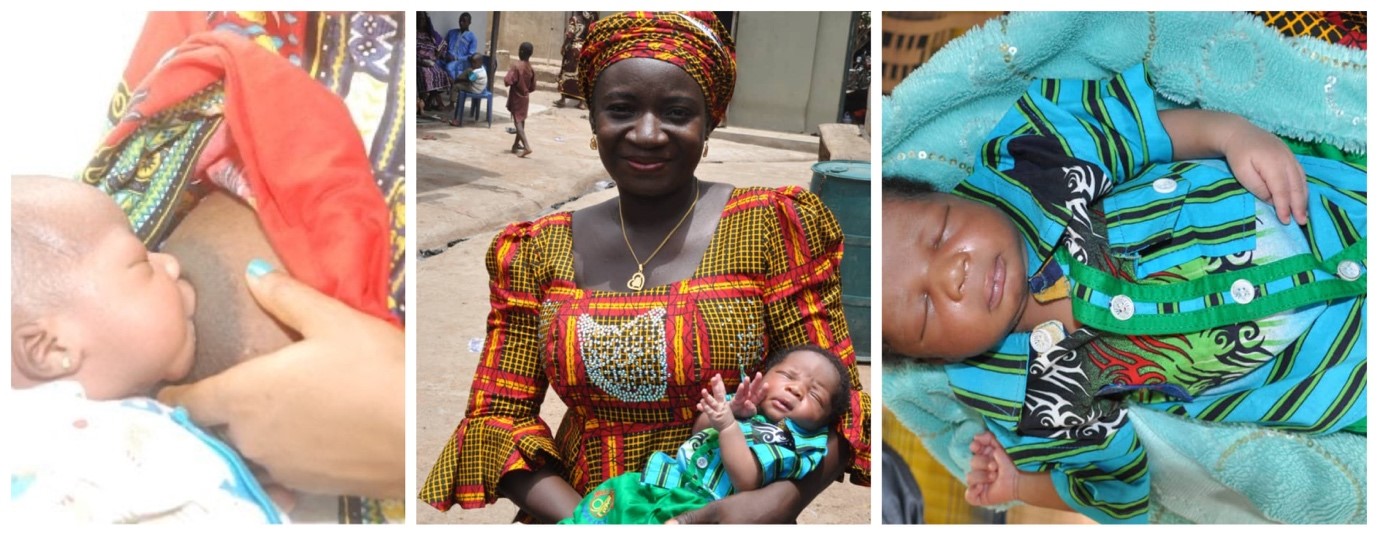
The Wellbeing Foundation and I recognise that providing hospitalised infants with a continuum of evidence-based care tailored to each infant’s feeding ability and maturation is of the utmost importance. This year, I am pleased to announce that we launched a programme providing Lactation Support for Premature and Sick Infants in Neonatal Intensive Care Units (NICU), focusing on the Promotion of the Neonatal Administration of Buccal Colostrum. Colostrum is an infant's first milk after birth, saturated with antibodies which protect against disease. The early provision of colostrum is a form of immune therapy, reducing the risk of Necrotizing Enterocolitis (NEC), an inflammatory and infectious condition of the bowel and is a leading cause death among preterm, very low birth weight or sick babies.
For NICU infants, breastfeeding, which may seem like a simple premise, is in reality a complex task requiring careful attention to the needs of both the mother and her infant to be undertaken safely. Through our initiative, we are supplying midwife and mother-led lactation counselling, support and equipment; Oral Immune Therapy and Buccal Colostrum administration for vulnerable NICU infants as a pilot at 7 selected hospitals across Lagos, Kwara, Kaduna and Abuja FCT.
To further anchor this initiative, we are pleased to endorse the Medela commitment to the Every Woman Every Child Initiative of the United Nations Foundation; in support of the Global Strategy for Women's, Children's and Adolescent's health 2016-2030; and the UN's Sustainable Development Goal agenda.
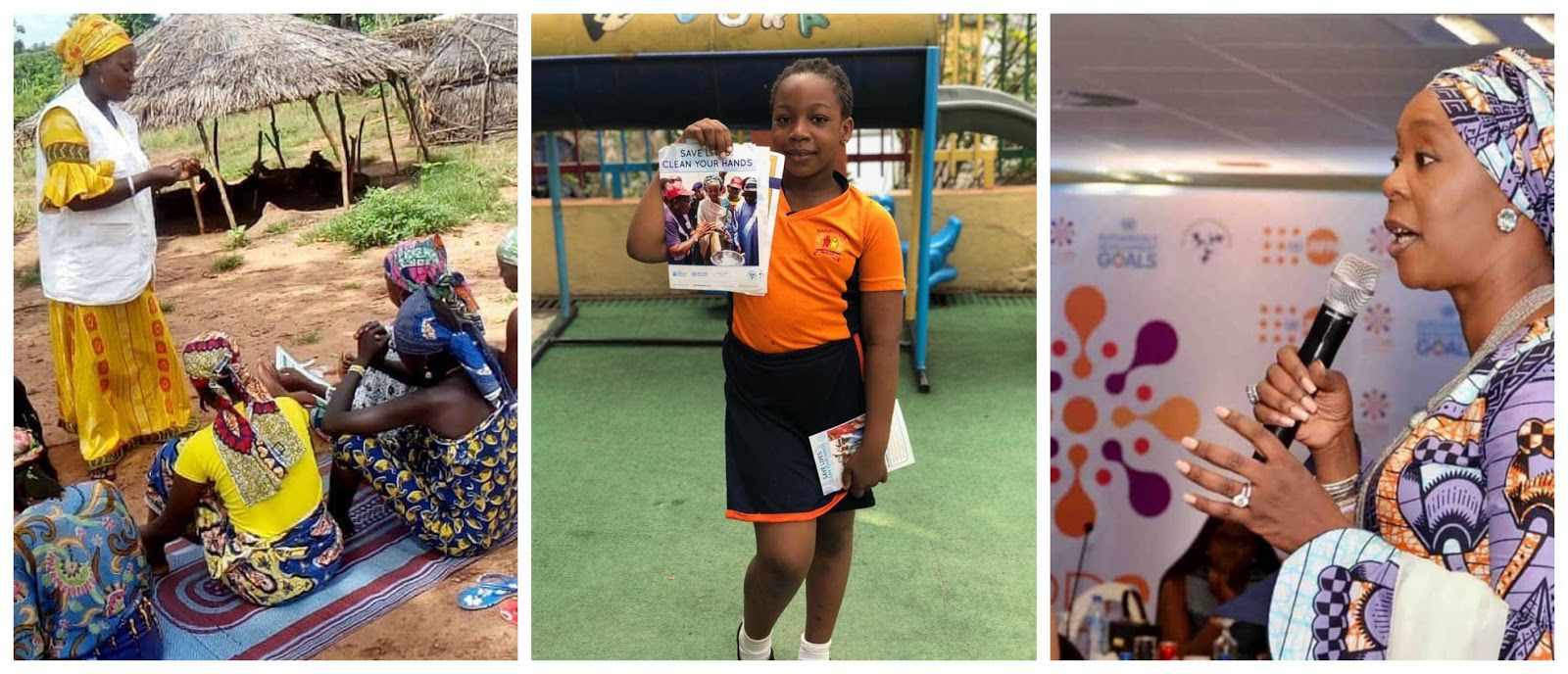
As our Water Sanitation and Hygiene (WASH) programmes progressed into their second year, percolating from high-level global policy advocacy to implementation in communities, schools, and health facilities; we are well on the way to achieving our target of reaching 2 million medical workers, mothers, newborns and school children with lifesaving infection prevention and control orientation for behavioural change. I am pleased to announce we have partnered with the London School of Hygiene and Tropical Medicine's Soapbox Collaborative to implement their TeachClean initiative for Hygiene in Health Facilities. Our midwives going forward will be teaching not only mothers in healthcare facilities but also the cleaning staff. I am optimistic that by broadening our remit in this way, we will be able to cascade cleaner hands, safer hospitals, safer delivery rooms, and safer births.
We believe that every girl and every teenager must be given the opportunity to access a complete education, including personal social and health education. This year, our Wellbeing Foundation Africa Adolescent Gender Empowerment strategy has built upon our Girl Declaration and Girls Not Brides supportive advocacy to encompass a full frontline outreach Adolescent Skills and Drills programme, emphasizing Respectful Relationships for protective informed choices. Over the last twelve months as part our Gender Goals strategy, we engaged girls in secondary schools through our Girl’s Bill of Rights survey. By asking girls to share their perception of their own rights we raised awareness of their right to a safe childhood, right to autonomy, and right to pursue their own future. This October to commemorate the International Day of the Girl Child, we introduced a sensitization workshop to celebrate and equip students with the power, knowledge, and space to voice their passions and concerns and to make informed decisions about their health and wellbeing, to secondary school students across Nigeria and Ghana.
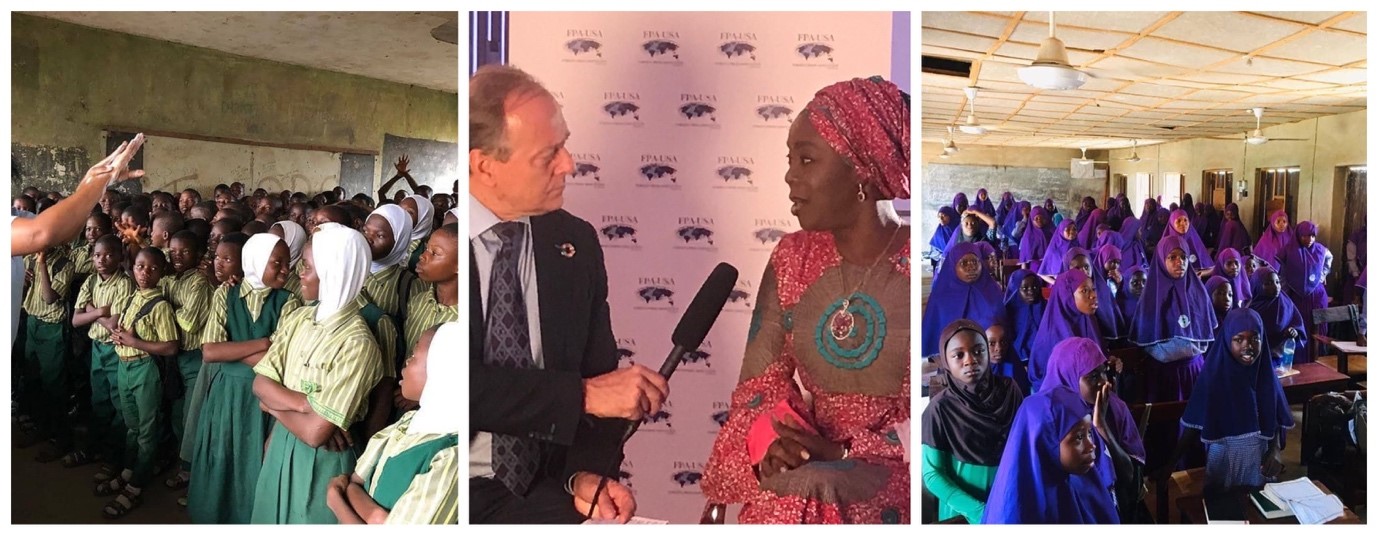
At the Wellbeing Foundation Africa, we recognise the importance of preventive health and lifestyle education in ensuring beneficial outcomes. As a result, it was a pleasure, for the second year, to partner the World Health Organisation Nigeria, for the "Walk The Talk" to Beat NCDs event in Abuja. We walked alongside a record 6000 participants and organisations committing to regular exercise to combat diabetes, high blood pressure disorders, and heart disease.
From a Global Health Policy perspective, I have spent the year travelling all over the world, supported by my Global Office team – knowledge-sharing from the World Economic Forum at Davos, and the SwitchPoint Ideas Festival at Saxapahaw North Carolina, to the World Water Stakeholder Meetings at Washington D.C. and Stockholm Sweden. Harnessing new and impactful innovation from the International Confederation of Midwives Congress in Namibia to the United Nations General Assembly at New York, while advocating for greater access to quality primary health, secondary and tertiary health care referrals for mothers, infants, children and for the conditions which will facilitate the greatest levels of health and wellbeing for our families, communities, and countries.
Although more people around the world are living better lives compared to a decade ago, inequities and inequalities persist as challenges that impede progress. I am aware that we have a long road ahead to 2030 if we are to successfully protect the progress and promote the objectives promised by the sustainable development goals (SDGs). I am impatiently optimistic based on the dedication of people I meet and the pervading sense of urgency that has enveloped each conversation and event I have been a part of. As the dawn sets on a new five-year cycle of action, we look ahead with new drive and energy to a final ambitious decade of consolidating impact and accelerating results for people and the planet.
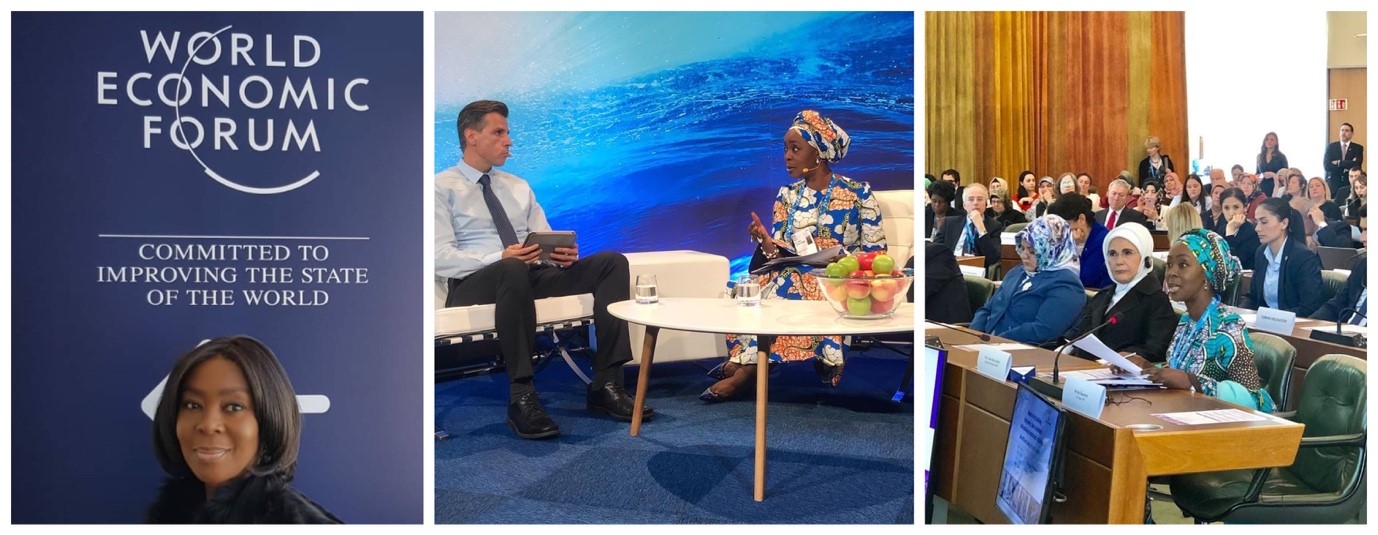
Concluding the year with the historic International Conference on Population and Development's ICPD25 Nairobi Summit, in November, has forged renewed resolve to ensure that we harness and strengthen key actions towards the three zeros: to end preventable maternal deaths, unmet need for family planning, and gender-based violence. As a member of the International Steering Committee of the summit, I was pleased to mobilise key commitments from Nigeria, and to report in that Nairobi significant commitments were made from Nigerian state and non-state actors. In the new year, we must focus on accountability – by ensuring the momentum continues for years to come.
Looking forward to 2020, the year of Nurse and the Midwife, we here at the Wellbeing Foundation are preparing for bold progress. Both for the profession and for maternal care more broadly, this is an opportunity that we can and will harness. We look forward to channelling our drive to ensure that every child can thrive, into new partnerships on the horizon. I delighted to announce that we anticipate showcasing and sharing best practices, from research bench to patient bedside, towards safe births, including key research into the prevention of pre-eclampsia with the prestigious Chelsea and Westminster Hospital of Imperial College, London, in the United Kingdom.
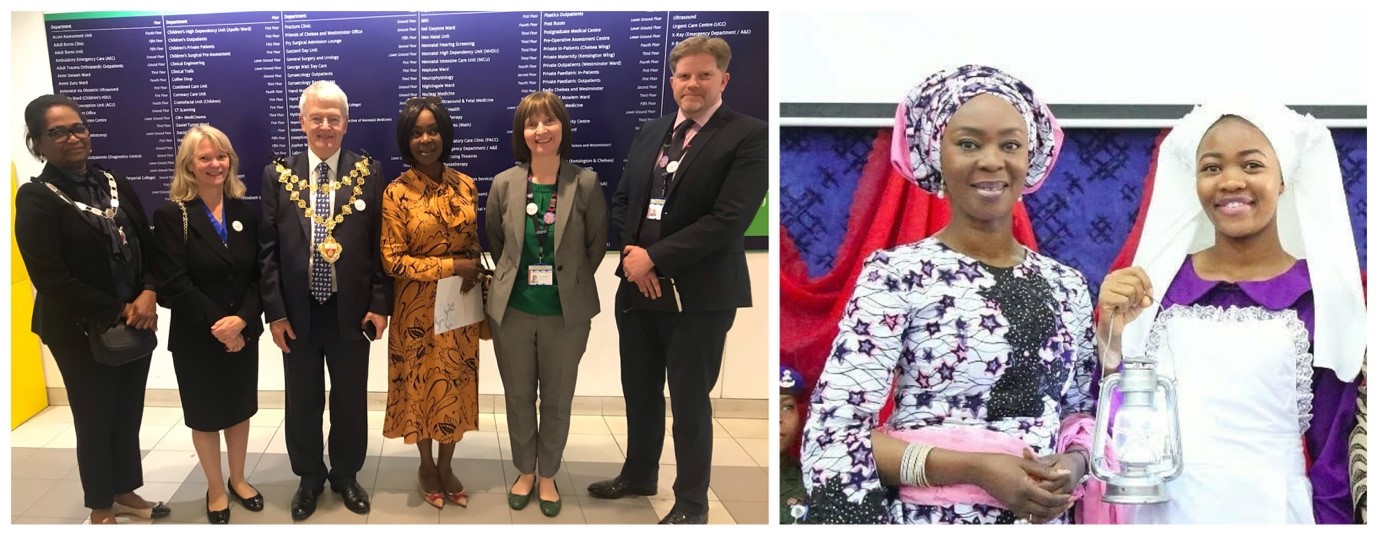
In 2004 the Wellbeing Foundation was founded upon a belief in the transformative power of a key data resource – thus the development of our Integrated Maternal Newborn and Child Health Personal Healthcare Records (PHR) Books, which were launched in 2006, and deployed through Nigeria's Federal Ministry of Health and National Primary Health Care Development Agency's Midwives Service Scheme. We are pleased that this initiative, which has always been central to our mission, is gaining international recognition. We eagerly look forward to working with new partners, in coordination with the Ministry of Foreign Affairs of Japan and the International Committee on Maternal and Child Health (MCH) Handbook, to further increase the uptake of these critical PHR books around the world.
In developing an appropriate Universal Health Coverage system that meets global needs, the Wellbeing Foundation, in alignment with the World Health Organization, has recommitted to employing a whole system approach for health for all with ten essential features. These ten features are: 1) Pregnant women should receive the right care, at the right time; 2) Newborns should receive essential care immediately after birth; 3) Small and sick babies should be well cared for in a facility; 4) All women and newborns must receive care that prevents hospital-acquired infections; 5) Health facilities must have an appropriate physical environment; 6) Communication with women and their families must be effective and respond to their needs; 7) Women and newborns who need referrals can obtain them without delay; 8) No woman should be subjected to harmful practices during labour, childbirth, and the early postnatal period; 9) Health facilities need well-trained and motivated staff consistently available to provide care, and 10) Every woman and newborn should have a complete, accurate, and standardized medical record. Each of one of our flagship programmes and initiatives; our Emergency Obstetric and Newborn Care programme, our Water, Sanitation and Hygiene programme, our Personal Healthcare Record Book initiative, our Alive and Thrive programme, and our MamaCare/MamaCare+N programme, are painstakingly tailored to meet these priorities.
Our work is made possible by the dedicated and tireless support of the Wellbeing Foundation Africa midwives, staff, partners, and supporters. It has been an honour to work alongside you. I hope that you will continue to lend me your wisdom and support going forward into 2020.
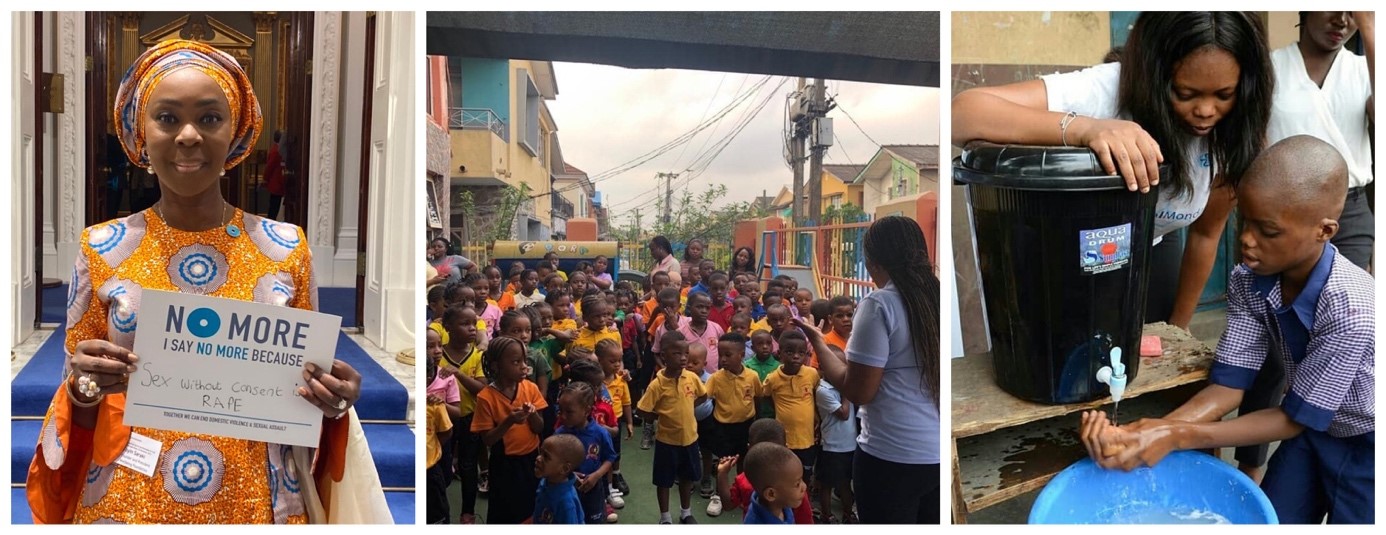
Over the last 12 months, we have bade appreciative farewells to a number of staff members, namely Chief Executive Officer Amy Oyekunle, Abuja Programme and Policy Manager; Christy Asala who retired to spend time with her young family, and Development Officer Krithika Raghavan who returns to her home country of India. Our former CEO Mrs Amy Oyekunle completed her 2-year contracted engagement in October 2019, concluding her excellent supervisory stewardship of our Alive and Thrive Infant and Young Child Feeding grant implementation. I wish Amy every success in her future endeavours.
I am pleased to welcome Dr Alero Ann Roberts, Senior Paediatrician and Medical Examiner as Vice President. We also welcome Ms Maryamu Jibril Aminu as Director, Development Partnerships and Policy, and Ms Lucy Ikonne as Director, Operations, Administration and Human Resources, to our Lagos Headquarters Office. At the Abuja Office, the WBFA mission is also pleased to welcome Moses Ekueme from The London School of Hygiene & Tropical Medicine as a dedicated nutrition policy and programmes focal manager.
As you read on you will find not a full account of every campaign or conference, but rather a selection of highlights from 2019 which I hope will enable you to gain a sense of the terrific impact we have been able to achieve from our dedicated endowment, and with the generous support of our partners.
I wish you a happy holiday season and all the best in the New Year.
Toyin Ojora Saraki
Founder-President of the Wellbeing Foundation, Inaugural Global Goodwill Ambassador to the International Confederation of Midwives, Special Adviser to the Independent Advisory Group of the WHO Regional Office for Africa, Concordia Leadership Council Member, Children’s Newborn Health Champion for Nigeria, Global Champion for the White Ribbon Alliance for Safe Motherhood, UNFPA Family Planning Champion and International Steering Committee member of the International Conference on Population and Development.
Emergency Obstetrics and Newborn Care (EmONC)
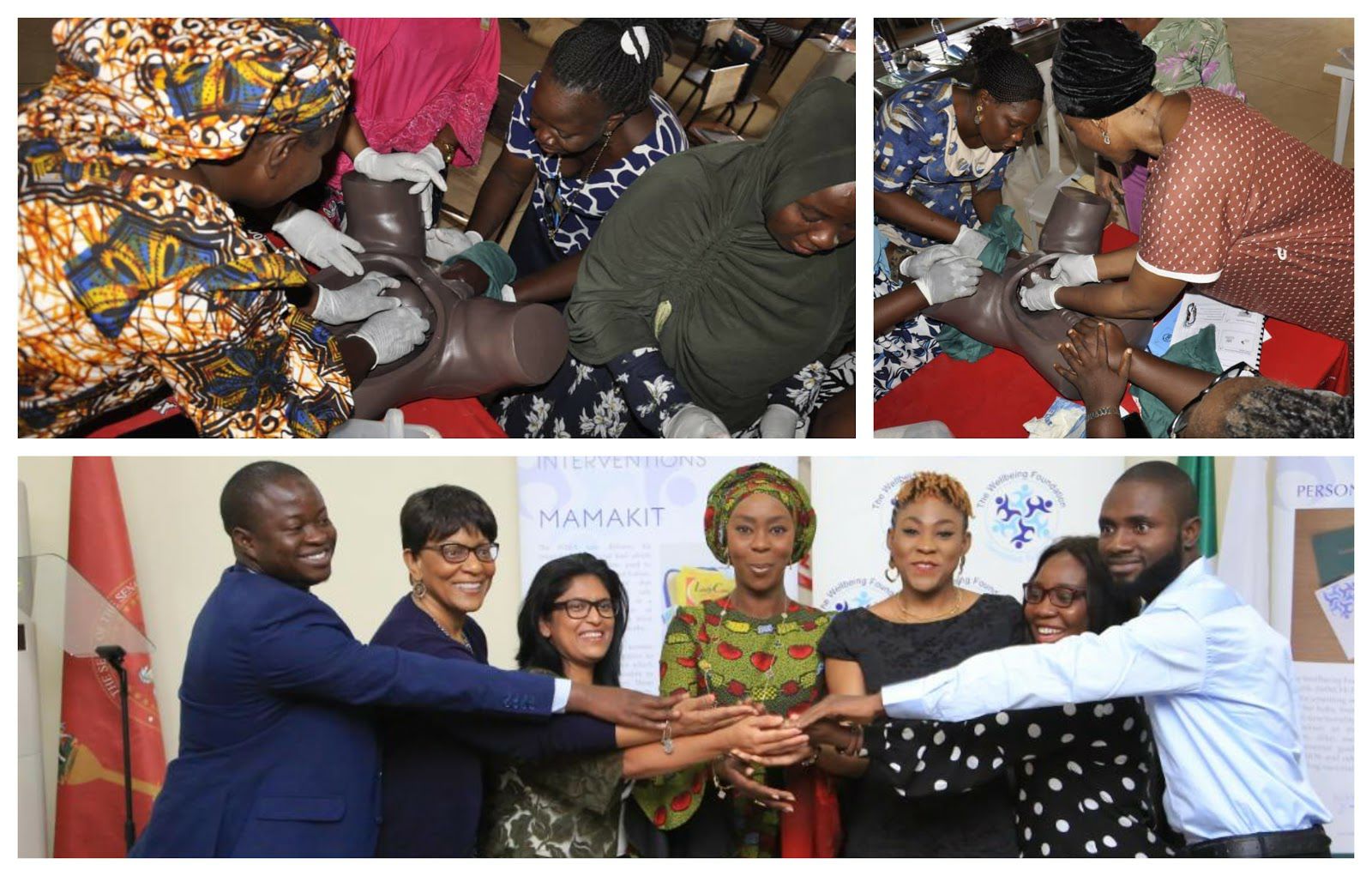
As we complete the first full year of phase three of our Emergency Obstetrics and Newborn Care (EmONC) programme, we find ourselves with an important opportunity to take stock of the incredible achievements made thus far and the brevity of work currently underway. Our year started at full speed in January as H.E Mrs Toyin Saraki welcomed our programmes’ international partners Johnson & Johnson to her residence in Abuja to discuss ongoing cooperation and the year ahead. We ended 2019 having successfully closed the fourth quarter evaluation stage, which saw our initiative expand to cover healthcare facilities across a staggering 16 Local Government Associations across Kwara State.
EmONC was borne out of a refusal to accept low-quality maternal and newborn care and combat the millions of lives needlessly lost due to inadequate health systems. The World Health Organization estimates that each day approximately 810 women die from preventable causes related to pregnancy and childbirth of which 94% of maternal deaths occur in low and lower-middle-income countries (2017 data). This can and must change.
The programme is a unique partnership between WBFA, Johnson & Johnson, and the Centre for Maternal and Newborn Health (CMNH) at the Liverpool School of Tropical Medicine (LSTM), which addresses the identified priorities and gaps in existing emergency obstetric and newborn care, by improving care availability and quality. We have successfully scaled up interventions in Kwara State by providing training in healthcare facilities to enhance the capacity of health workers.
As WBFA's Kwara State Programme Manager, Isaac Ejakhegbe explained, “It is a facility-based training, and therefore we have been going from one hospital to another, allowing trainees to make presentations and immediately put into practice what they have learnt.” Dr Mohammed Hauwa, Senior Technical Programme Officer of the LSTM commented that our programme "will mean a measurable reduction in deaths of pregnant women during or after birth, stillbirths and infant mortality in general."
In addition to programmatic healthcare training, over the year WBFA has increased its online engagement via Twitter and Facebook to reach a large audience to share updates and raise awareness. This type of outreach has been valuable in educating the larger community on the importance of women’s access to quality care through a skilled healthcare worker. By making women the focal point, the partnership ensures that healthcare workers are both well-equipped and are respectful of the population they serve.
In October, we announced the fourth quarter evaluation stage of phase three of the programme. Facilities which received Quality Improvement Training and underwent maternal and perinatal death audit each formulated an action plan following training completion. These impact evaluations have critical to assessing the initiative's strengths and weaknesses, enabling us to address changes needed to ensure the programmes continuously improves as it expands. These monitoring and evaluation activities have created opportunities for growth and learning, standing us in good stead as we begin the final year of phase three in 2020.
Stay tuned for more EmONC updates in 2019!
Water, Sanitation, and Hygiene (WASH)
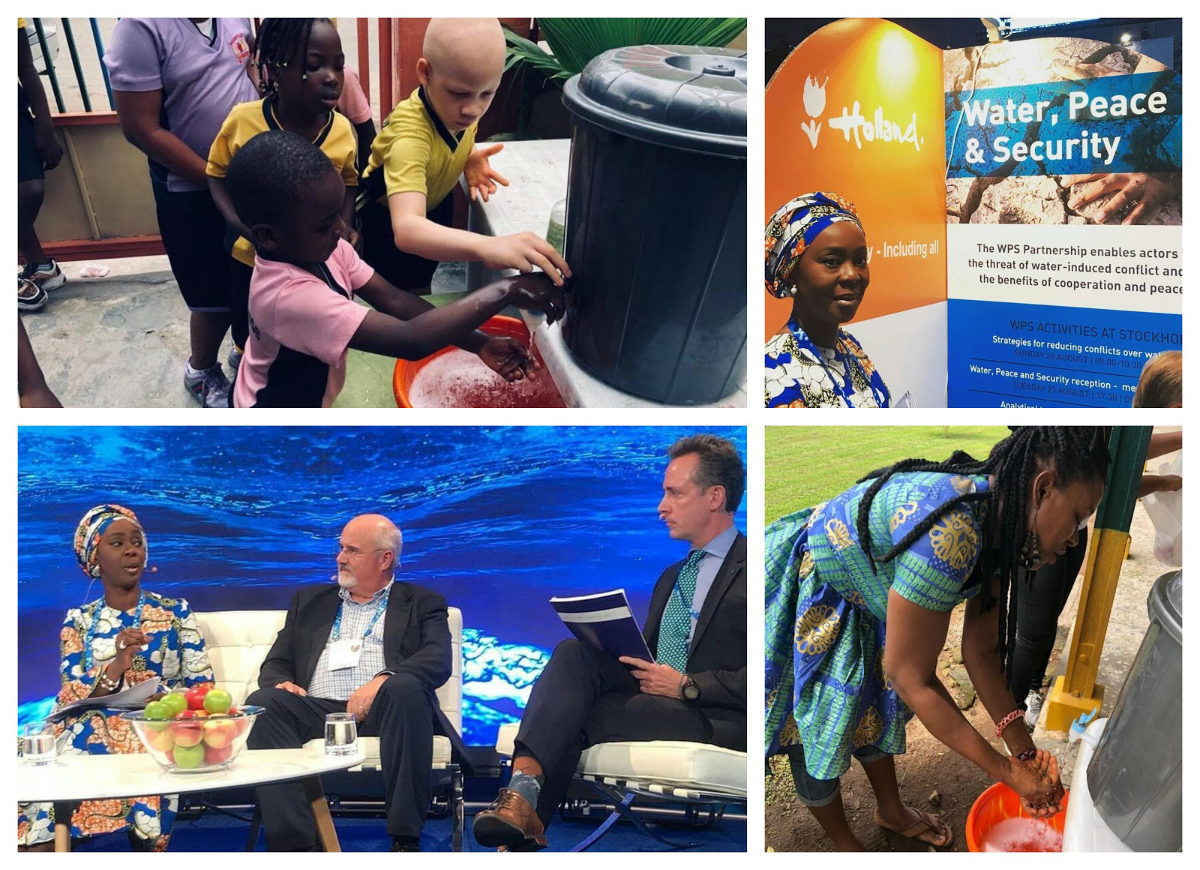
Institute, Mrs Saraki joined Mr John Oldfield of Global Water 2020, Mr Ron Clemmer of FHI 360, and the Global Handwashing Partnership to raise awareness during a plenary on the growing momentum to get sustainable WASH into healthcare facilities, on-going challenges, and the deep strains on frontline health workers’ ability to provide safe care and practice preventive medicine.
Without WASH structures, a trained midwife, as a professional dedicated to saving the lives of mothers and infants, is therefore often faced with the troubling prospect of being unable to provide the level of care that we all deserve. This reality has led us to undertake a baseline survey of the WASH facilities and practices in all of the 614 health facilities. We look forward to using our findings, which we hope to fully collate early next year, to power an advocacy drive and to work with healthcare facilities to bridge the gaps in their WASH provisions.
“Most primary health centres in Nigeria lack good washing facilities. At the Lugbe PHC, there is no washing sink in the labour room, so water has to be fetched from the tap outside and brought to the mother. A health worker who wants to wash her hands will have to fetch a bucket. It is not possible for us to do our jobs as midwives without access to water, sanitation, and handwashing stations,” said Rita Momoh, one of our dedicated Midwives.
After Mrs Saraki met with Professor Wendy Graham, a professor of obstetric epidemiology from the London School of Tropical Medicine and Hygiene, at the World Health Assembly in May, we began working towards implementing the Soapbox Collaborative’s TeachClean Initiative across the locations we operate in. Our midwives going forward will be teaching not only mothers in healthcare facilities but also the cleaning staff. Teaching those who clean to perform the right, safe actions will reduce the risk of healthcare-associated infections for patients and staff in healthcare facilities to improve the health and survival of mothers and newborns.
National Advocacy
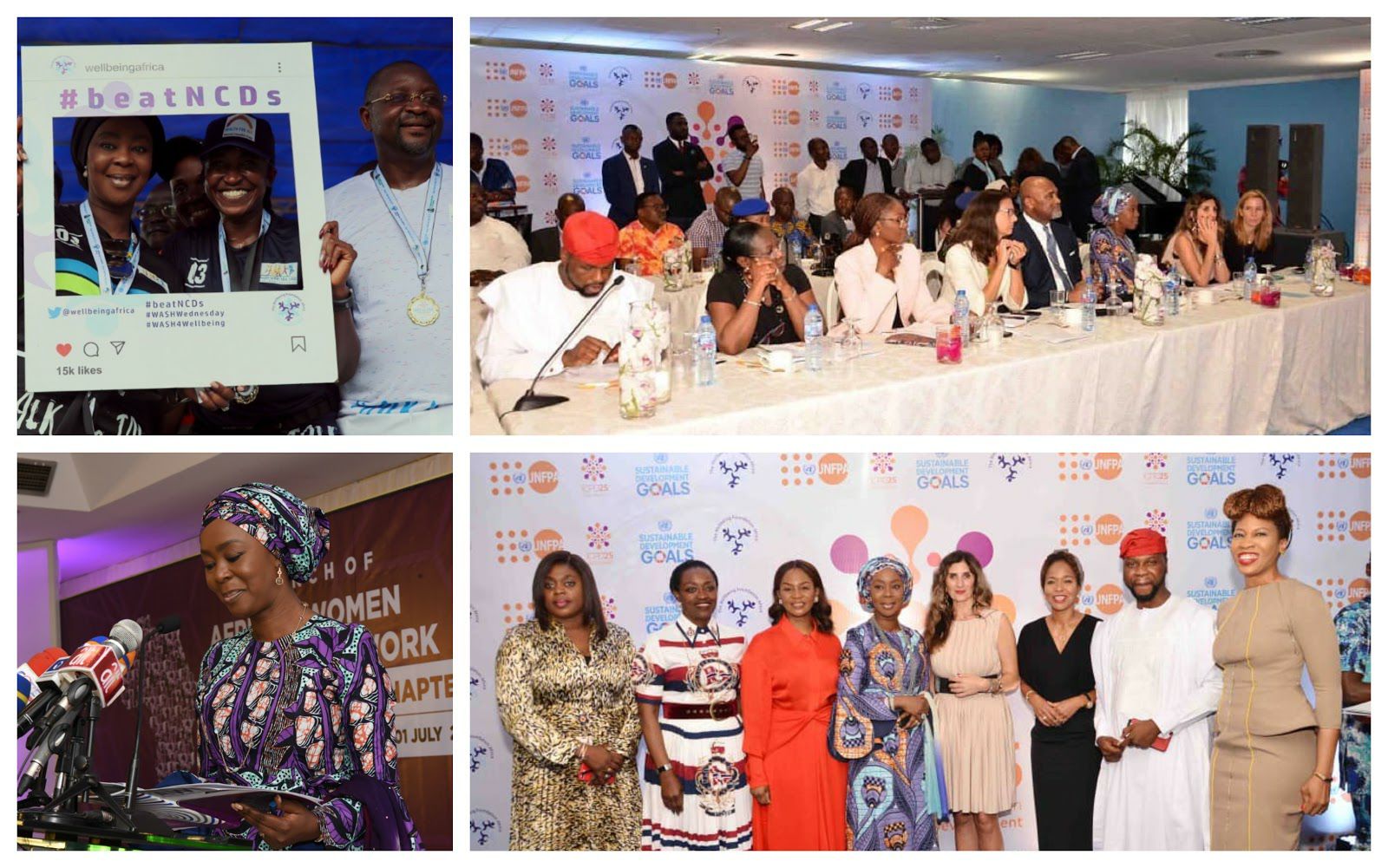
This year has been truly eventful in terms of national advocacy for the Wellbeing Foundation Africa. 2019 has seen the foundation make bold strides forward for women’s equality, health and wellbeing for all, and sexual and reproductive health and rights (SRHR) in Nigeria.
We are proud to announce that in July a delegation headed by Mrs Saraki supported the historic launch of The African Women Leaders Network. Over the last 6 months AWLN has been making waves in the country, by effectively advocating for increased women’s participation in decision-making and a national vision to support women’s empowerment in line with Africa’s Agenda for 2063, and the UN resolution 1325 on Women, Peace, and Security.
In September building on the success of Walk the Talk events held in cities all around the world, we organised an Abuja addition of the initiative with our partners WHO Nigeria and the Federal Ministry of Health. We joined thousands of people of all ages and abilities to walk from Millennium Park across central Abuja to engage the community in a celebration of healthy lifestyles, to advocate for Universal Health Coverage, and spread awareness of non-communicable diseases. The event was also attended by: the Minister for Youth and Sports, Mr Sunday Dare; the Minister for Health, Dr Osagie Ehinare; and actress Kate Henshaw, along with other heads of national agencies, development partners, and members of the diplomatic community.
In October, in Lagos, led by Mrs Saraki, we hosted a High-Level Breakfast Roundtable in partnership with the United Nations Population Fund (UNFPA) through Mariarosa Cutillo, UNFPA’s Chief of Strategic Partnerships. The roundtable convened private, philanthropic, and multi-sector stakeholders in Nigeria to secure commitments towards the three zeros: to end preventable maternal deaths, unmet need for family planning, and gender-based violence.
The event was a major success, as a series of significant commitments were made by leading organisations, including Red for Africa, Coca-Cola Nigeria Limited, and the Sahara Group, amongst others. It was a major step in advance of the Nairobi Summit, which brought together heads of state and ministers, parliamentarians, civil society organizations, representatives of the private sector, and thousands of others committed to the pursuit of reproductive health and rights – 25 years on from the promises made by 179 governments in Cairo in 1994 at the landmark International Conference on Population and Development (ICPD). In her comments at the roundtable, H.E. Mrs Toyin Saraki welcomed the commitments made, “It has been encouraging to see the private sector in Nigeria willing to step up and help us urgently act to transform health outcomes for women, children, and communities”.
We look forward to continuing to lead the Nigeria ICPD initiative and working with our partners during 2020 to build on the existing momentum we have generated towards ending preventable maternal deaths, unmet need for family planning, and gender-based violence.
Adolescents Skills and Drills
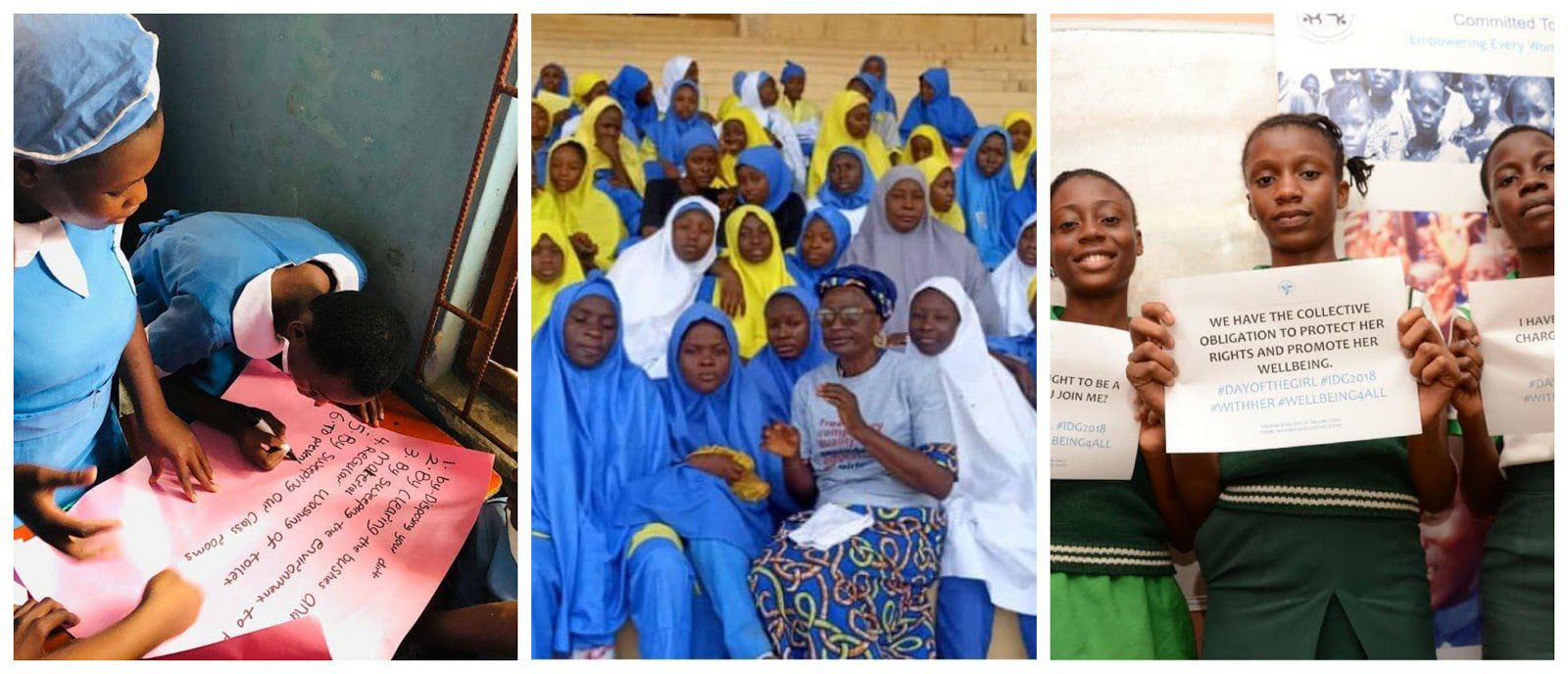
This year has been truly eventful in terms of national advocacy for the Wellbeing Foundation Africa. 2019 has seen the foundation make bold strides forward for women’s equality, health and wellbeing for all, and sexual and reproductive health and rights (SRHR) in Nigeria.
We are proud to announce that in July a delegation headed by Mrs Saraki supported the historic launch of The African Women Leaders Network. Over the last 6 months AWLN has been making waves in the country, by effectively advocating for increased women’s participation in decision-making and a national vision to support women’s empowerment in line with Africa’s Agenda for 2063, and the UN resolution 1325 on Women, Peace, and Security.
In September building on the success of Walk the Talk events held in cities all around the world, we organised an Abuja addition of the initiative with our partners WHO Nigeria and the Federal Ministry of Health. We joined thousands of people of all ages and abilities to walk from Millennium Park across central Abuja to engage the community in a celebration of healthy lifestyles, to advocate for Universal Health Coverage, and spread awareness of non-communicable diseases. The event was also attended by: the Minister for Youth and Sports, Mr Sunday Dare; the Minister for Health, Dr Osagie Ehinare; and actress Kate Henshaw, along with other heads of national agencies, development partners, and members of the diplomatic community.
In October, in Lagos, led by Mrs Saraki, we hosted a High-Level Breakfast Roundtable in partnership with the United Nations Population Fund (UNFPA) through Mariarosa Cutillo, UNFPA’s Chief of Strategic Partnerships. The roundtable convened private, philanthropic, and multi-sector stakeholders in Nigeria to secure commitments towards the three zeros: to end preventable maternal deaths, unmet need for family planning, and gender-based violence.
The event was a major success, as a series of significant commitments were made by leading organisations, including Red for Africa, Coca-Cola Nigeria Limited, and the Sahara Group, amongst others. It was a major step in advance of the Nairobi Summit, which brought together heads of state and ministers, parliamentarians, civil society organizations, representatives of the private sector, and thousands of others committed to the pursuit of reproductive health and rights – 25 years on from the promises made by 179 governments in Cairo in 1994 at the landmark International Conference on Population and Development (ICPD). In her comments at the roundtable, H.E. Mrs Toyin Saraki welcomed the commitments made, “It has been encouraging to see the private sector in Nigeria willing to step up and help us urgently act to transform health outcomes for women, children, and communities”.
We look forward to continuing to lead the Nigeria ICPD initiative and working with our partners during 2020 to build on the existing momentum we have generated towards ending preventable maternal deaths, unmet need for family planning, and gender-based violence.
International Advocacy
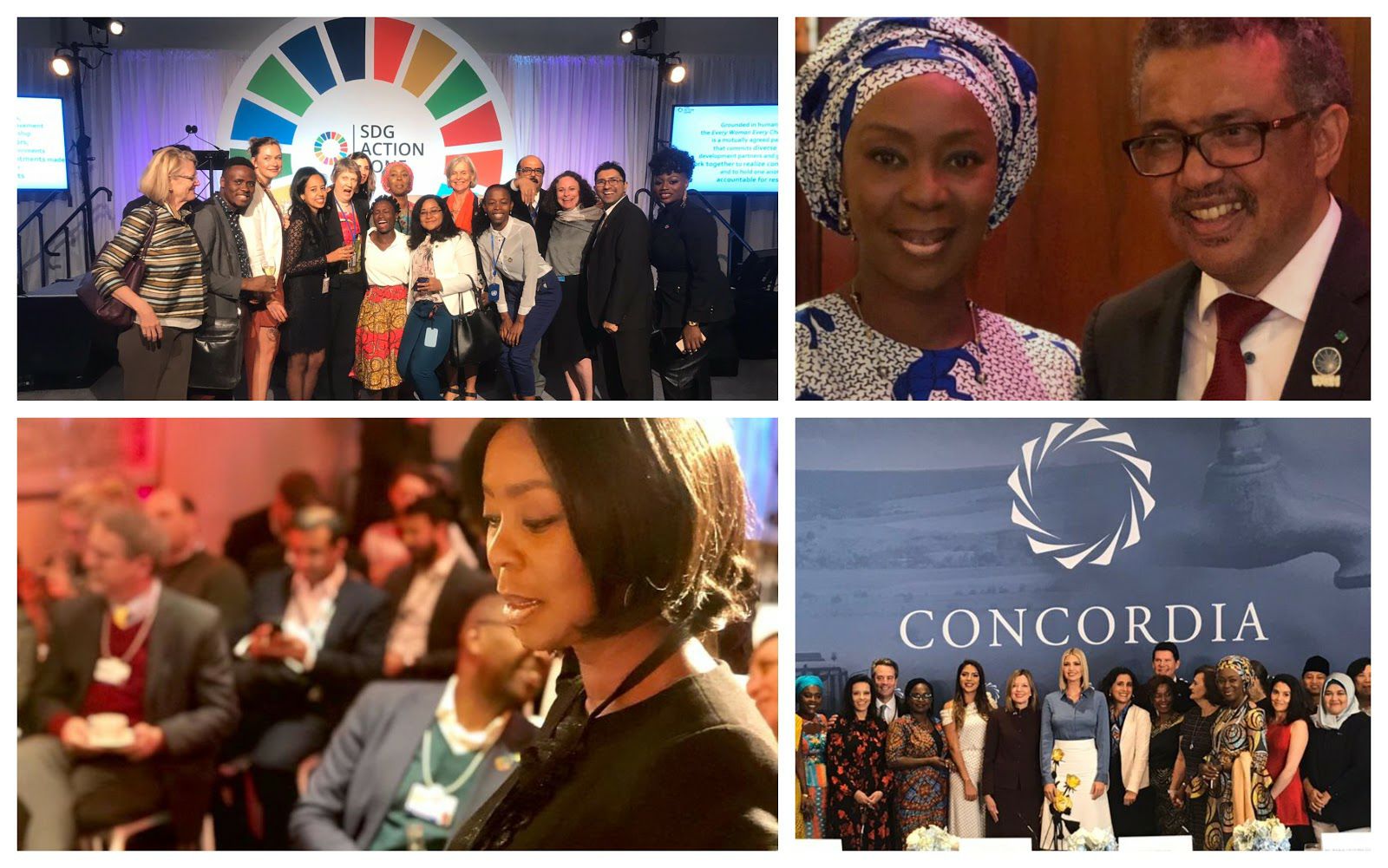
This year, our engagement with dedicated organisations and individuals from all over the world has clearly demonstrated to us that progress is possible through partnerships. Our advocacy has been broad over the last 12 months to include a range of activities: from driving forward commitment to Universal Health Coverage (UHC) during the 74th United Nations General Assembly in the United States to making a series of interventions at Women Deliver 2019 in Canada, the world’s largest conference on gender equality.
In January, led by Mrs Saraki, the Wellbeing Foundation made a series of high-level interventions at the annual World Economic Forum in Davos, Switzerland. Mrs Saraki urged the 65 world leaders and 3,000 participants to abandon ‘business as usual’ in recognition of the $33 billion gap in funding for reproductive, maternal, newborn, child, and adolescent health and called for enhanced collaboration between sectors to bring sustainable results to the grassroots level.
In March, building on our collaboration AMREF as the Nigerian Partner on the ground-breaking report ‘Cancer Ecosystem Assessment in West Africa’ in Ghana, Nigeria, and Senegal, Mrs Saraki addressed the Africa Health Conference in Kigali, Rwanda. She participated as part of AMREF Health Africa and PATH's panel organised, joining Dr Sarah Opendi, Uganda Minister for Health, Professor Joachim Osur, of AMREF, and Angela Nguku of White Ribbon Alliance, Kenya, in a high-level session focused on ‘Social Accountability to Advance Universal Health Coverage.’
In April, Concordia, an organisation dedicated to fostering cross-sector partnerships for social impact, announced the appointment of Mrs Saraki to its Leadership Council. “[Mrs Saraki] has demonstrated her unwavering commitment to the youth of Africa and has shared her invaluable perspective on the role of innovative philanthropic models across the continent,” remarked Concordia Co-Founders Nicholas Logothetis and Matthew Swift. During UNGA, a WBFA delegation led by Mrs Saraki led strategic planning discussions on how to expand Concordia’s remit further into our continent, in order to elevate African voices and priorities on the international stage. We look forward to welcoming Concordia to Lagos next March.
In June, we attended the Women Deliver 2019 conference in Vancouver, Canada, alongside Prime Minister Justin Trudeau of Canada and Sahle-Work Zewde, President of the Federal Democratic Republic of Ethiopia. The Wellbeing Foundation participated in high-level meetings and sessions on a wide range of issues related to gender. “I believe that the passing of a comprehensive Gender Equality and Opportunities bill into law in Nigeria is a crucial element to bring about manifest progress for women and girls” said Mrs Saraki in an intervention to the floor.
In September, Mrs Saraki led a WBFA delegation to the 74th United Nations General Assembly in New York. To start the week off Mrs Saraki joined Dr Tedros Adhanom Ghebreyesus, WHO Director-General and thousands of people for Walk the Talk: NYC to promote healthy lifestyles and to advocate Universal Health Coverage. As PMNCH’s original in-country Nigerian partner, we were delighted to support the partnership’s accountability breakfast, where we discussed the need for development agencies to move away from short-term project models. During the Girls Not Brides ‘Child Marriage in Humanitarian Setting Reception’ session hosted by the Ford Foundation, we reaffirmed commitments to continue frontline actions to end child marriage, keep girls in school, and mitigate the effects of teenage pregnancy.
The UN General Assembly week offered the respective heads of Wellbeing Foundation, DAI Global, and IntraHealth the opportunity for a valuable in-person meeting, which allowed for a productive decision-making session related to our initiative to open Primary Health Care Facilities in Nigeria. Furthering our advocacy for Universal Health Coverage, we joined KPMG Senior Partner for Healthcare, Dr Mark Britnell for a fireside chat, while Mrs Saraki accepted an invitation to moderate the UNSDG Health Partnership High-Level Panel on sustainable health financing in Zimbabwe. Ultimately, the 74th United Nations General Assembly was hailed as a major success for Universal Health Coverage, and we are proud to have contributed to this milestone.
We look forward to sharing with you how we continue to galvanize the momentum we have gained throughout 2020.
Alive and Thrive
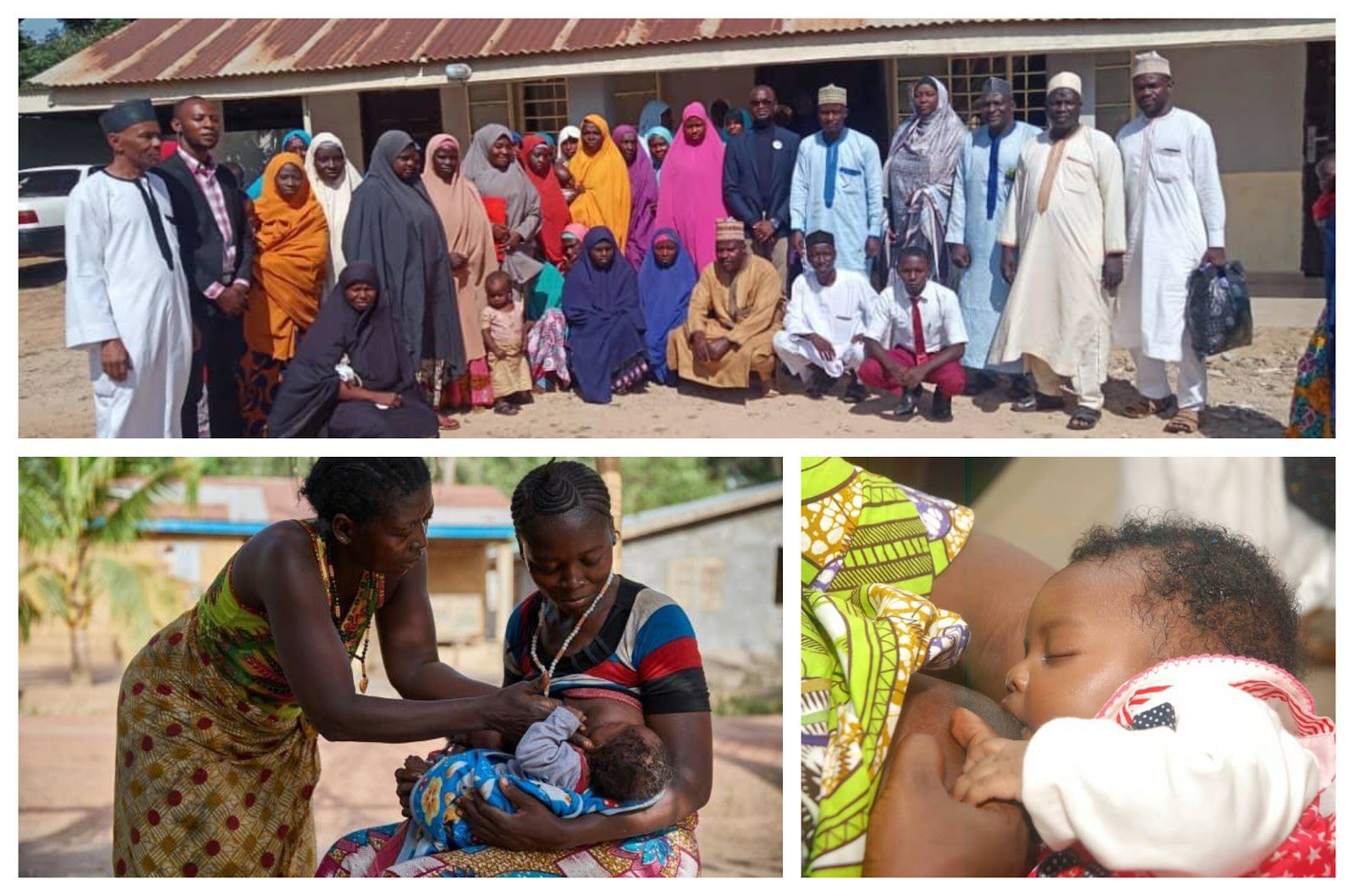
Our Alive and Thrive project was born from the understanding that babies that are properly fed and exclusively breastfed experience greater growth in childhood, cognitive development, school performance, and future productivity. The initiative has saved lives, prevented illness, and ensured healthy growth and development in infants through sustained improvements in maternal nutrition, breastfeeding, and complementary feeding practices.
Over the last year, the Wellbeing Foundation Africa team of 55 midwives has reached a staggering 34,359 pregnant women, 28,317 mothers with children less than 2yrs and 5,919 influencers (fathers, grandmothers, and women of childbearing age) in Lagos. While in Kaduna we have reached 12,196 pregnant women, 11,661 mothers with children less than 2yrs and 4,856 influencers. This impact has been made possible with the support from the Bill & Melinda Gates Foundation and the management skills of FHI360. We are proud to have implemented the project alongside UNICEF, Save the Children, and STB McCann.
When we first started Alive and Thrive, during our Early Implementation Phase between January - March 2018 we were tasked with implementing the project in just 6 private facilities in Lagos. From this success, we expanded to operate in 500 Private Health Facilities in Lagos and subsequently developed a Private Sector Model to scale up Infant and Young Child Feeding (IYCF) initiatives in the state. A total of 55 midwives/nurses were re-oriented and trained as coaches on proper IYCF practices with a focus on the three primary project indicators: Early Initiation of Breastfeeding, Exclusive Breastfeeding, and appropriate Dietary Diversity/Complementary Feeding. In addition to the coaches, a total of 2,787 health professionals have been re-oriented on proper IYCF practices in both Lagos and Kaduna. As a result, our efforts will have a ripple effect, and we will continue to improve the lives of infants well beyond the project’s implementation close out this December.
In a February bid to ensure a smooth entry into the health facilities and continued cooperation, we held a sensitization conference for the Medical Directors/Proprietors of the selected health facilities in Lagos. In March, the Alive and Thrive team, conducted a courtesy visit to the newly appointed Permanent Secretary to officially introduce the Alive and Thrive initiative to the Lagos State Ministry of Health. In honour of the International Day of the Midwife, we hosted a conference in May 2019 in Lagos, during which our Alive and Thrive team held an interactive session on “Building Inter-Personal Communication skills to start strong Infant and Young Child Feeding”.
In June, our team, in conjunction with FHI360, hosted a delegation from the Bill and Melinda Gates Foundation. The delegation met with the director of Faith City Hospital, an implementing private health facility, and was able to ask questions relating to the project’s success. In September, for World Breastfeeding Week our team attended and organised multiple events, alongside FHI360 and SCI, aimed at promoting and supporting optimal breastfeeding with the theme "Empower Parents, Enable Breastfeeding”. Our actives included an advocacy walk in Kaduna, food demonstrations on complementary feeding, town meetings, and a social media campaign. In October 2019, the Nutrition Division of the Federal Ministry of Health conducted a Joint Supportive Supervision visit with our team and FHI360, to two Alive and Thrive-supported private health facilities in Lagos.
We are very proud of what our team has achieved over the last two years and we hope that with continued public service messaging, these beneficial results will accelerate nutrition improvement measurably. As we close out next year having achieved all that we set out to, we look forward to channelling our commitment to improving young child feeding and early and exclusive breastfeeding through new avenues in 2020.
MamaCare and MamaCare+N
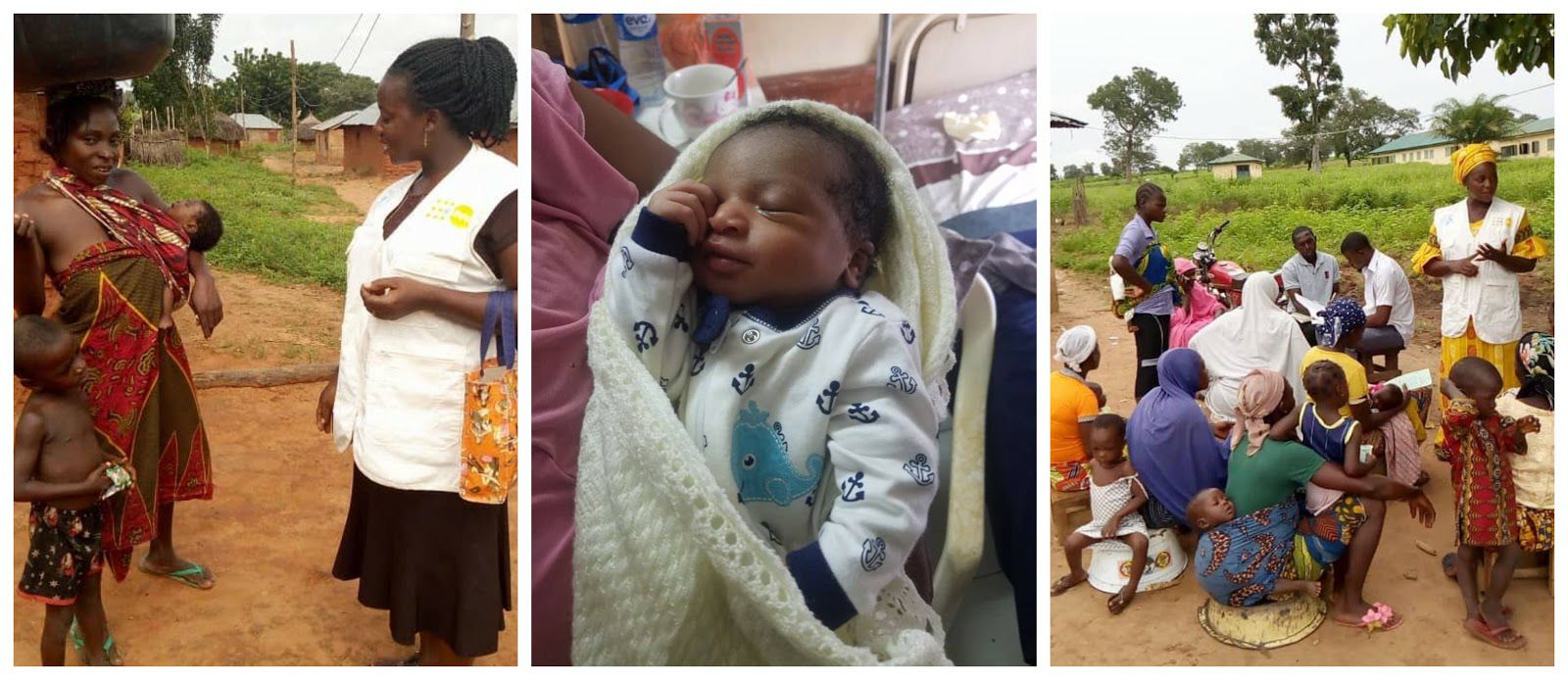
We know that a mother’s nutritional status, mental wellbeing, and lifestyle choices, before and during pregnancy, can profoundly affect the future health and wellbeing of the child. Our MamaCare programme is built on this understanding. Throughout 2019, our MamaCare midwives continued and expanded their antenatal, intrapartum, and postnatal classes for women, mothers, and their families. They provided mothers with critical information on their pregnancy, nutrition, birth preparedness, finance, and care of the baby, empowering them to make informed decisions.
In May, building on our MamaCare model, we launched our ‘MamaCare + Nutrition programme’, in collaboration with UNFPA. Since then we have been implementing in 34 facilities and have reached a total of 8,919 pregnant women, and 4,596 mothers with children less than two years old in the Federal Capital Territory. The goal of MamaCare+N has been to improve maternal nutrition through the provision of maternal nutrition counselling to pregnant and postpartum women on anaemia in pregnancy, benefits of micro-supplementation, and dietary diversity, amongst other nutritional information. So far, the project has been a clear success, we look forward to building on our progress this year and to reaching new heights during 2020.
In May, for the International Day of Midwife, our Lagos MamaCare team hosted 40 midwives from our 21 implementing facilities along with the Matron and Deputy from each facility. Top health personnel from both the public and private sector attended each, including the Lagos State Director of Nursing Service. The month of August was an important month for our MamaCare midwives. In Kwara, our team joined forces with our EmONC programme, as our midwives and local midwife partners from our nine implementing facilities underwent a training programme on life-saving essential obstetric care and newborn care skills at Kwara State Specialist Hospital. For World Breastfeeding Week the Lagos team ran innovative discussion forums both with healthcare practitioners and mothers, in three of their established implementing facilities: Island Maternity Hospital, 9 Brigade medical centre, and Awoyaya Primary Health Care Center.
Over the last 12 months our team has been championing technology into our care model. The majority of our midwives host groups with expectant and new mothers over WhatsApp. This enables MamaCare mothers to have access to advice from a trained professional outside of classes.
Despite the dangerous reality that expectant mothers face in Nigeria - women have a one in twelve risk of maternal mortality in their lifetime – this year we maintained our gold standard of care. Since we started in 2014 we have not lost even one of our over 250,000 MamaCare mothers during childbirth. But midwives are more than just lifesavers. Those who come to our classes have many questions about childbirth, nutrition, and the health of their baby, but they are also provided with a safe space to discuss any other areas of concern. Between a midwife and mother are no topics that are off-limits. Over the last twelve months, our midwives have offered guidance on a large range of health topics, but also issues such as domestic violence and birth-preparedness financing.
Stay posted for more MamaCare updates in the New Year!
2020: The Year of the Midwife and the Nurse
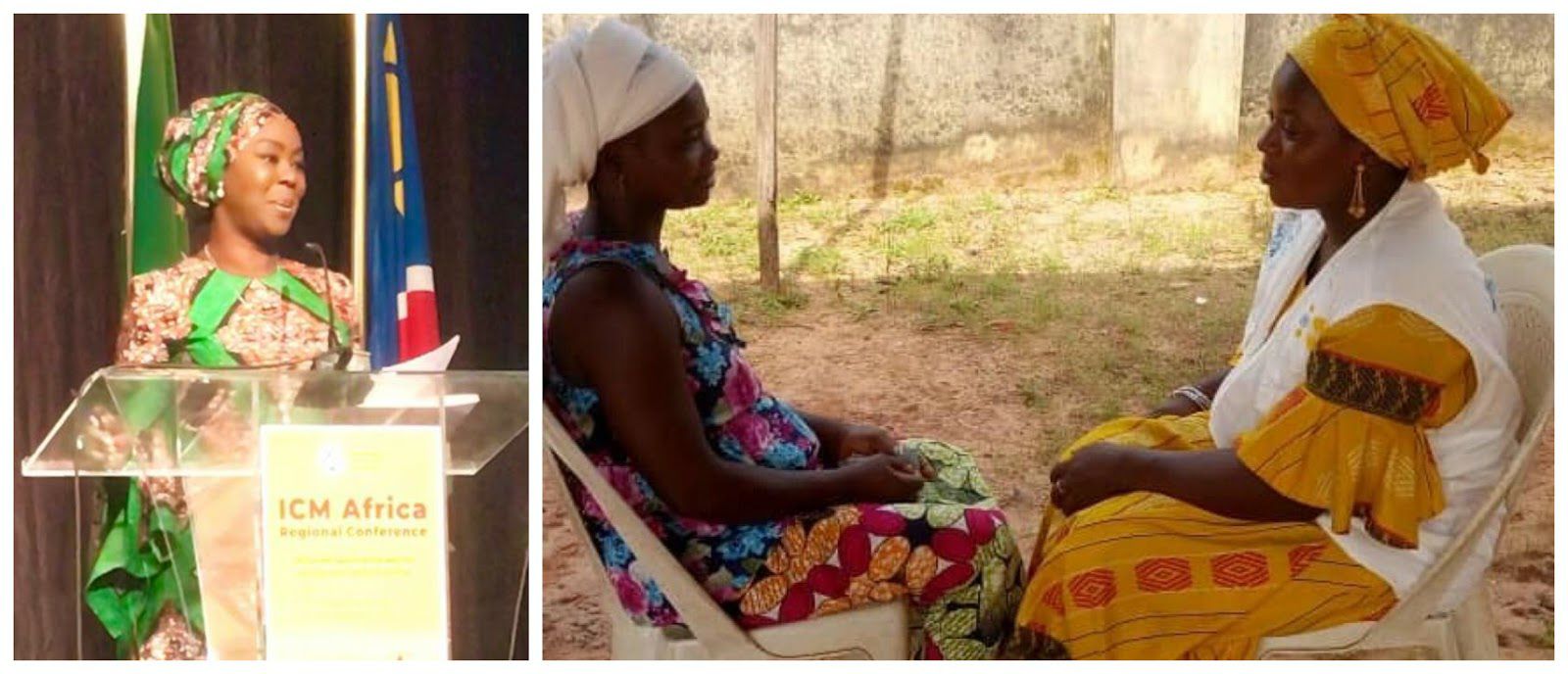
We have always operated according to the central belief that a women-centred, midwife-led model of care – one that follows normal physiologic labour and childbirth with no unnecessary or excessive interventions – saves lives and allows women and their infants to stay alive and thrive.
We believe that WHO’s landmark announcement that 2020 will be the International Year of the Nurse and Midwife provides a critical chance to advocate for and strengthen midwives and the midwifery profession. Next year, for the first time, countries around the world will unite in recognition of the essential role that midwives play in providing quality maternity care, achieving Sustainable Development Goals, and delivering Universal Health Coverage (UHC).
We are pleased to report that this year we have been part of a number of successes which have laid the foundation for accelerated progress during 2020. At the World Health Assembly in Geneva earlier this year, we welcomed the launch of the report Strengthening quality midwifery education for Universal Health Coverage 2030: A transformative approach to ‘Improving the Quality of Care’, produced by the International Confederation of Midwives (ICM), alongside WHO, UNFPA, and UNICEF. This September, ICM’s Africa Regional Conference was an important event for our advocacy. Our delegation, led by Mrs Saraki, who is ICM’s global goodwill ambassador, was able to share and learn from the latest developments in midwifery knowledge and strengthen networks within the region.
We are delighted to announce that on the horizon next year is a new and exciting partnership with Chelsea and Westminster Hospital. Chelsea and Westminster Hospital NHS Foundation Trust provides care to a community of over 1 million people in London and is ranked the top-performing hospital trust in the UK. We will be collaborating to create a ‘Safer Maternity Partnership’. In 2020 we are looking forward to an international maternity workforce exchange project, multidisciplinary simulation training, innovation sharing, and International visits between key maternity teams. Ultimately, we aim to provide further education for midwives and other healthcare professionals to support a vision of maternity care that is safer, more personalised, kinder, and more professional and family-friendly.
Rest assured that we at the Wellbeing Foundation have high aspirations and expansive plans for how we drive progress forward next year. We are hopeful that with your support, our collective voices will enable greater resources, respect, and training to be allocated to midwives globally.
Share this Article
